In today’s electoral contexts, social media platforms serve as powerful tools for fostering communication between candidates and voters. However, these platforms are increasingly exploited to distort public perceptions and undermine informed decision-making. Ahead of Kenya’s August 2022 general elections, Fecomo, in partnership with the Africa Centre for People Institutions and Society (Acepis), META (Facebook), Search for Common Ground, The Sentinel Project, and the European Union in Kenya, mobilized youth across the country to participate in training sessions aimed at addressing online hate speech and misinformation. This initiative brought together 163 participants in the first cohort, 289 in the second, and 795 in the third, drawn from all 47 counties in Kenya.
At the opening of one of the workshops, Misako Ito, Regional Advisor for Communication and Information, highlighted the significance of responsible online behavior, noting, “We often engage with social media posts instinctively, without verifying their accuracy. A single click can have far-reaching consequences both online and offline. It’s critical for users to think critically and click wisely.”
Kenya has experienced the devastating consequences of hate speech and disinformation in electoral periods, notably during the 2007 general elections, which were marred by violence. The rapid growth of social media and digital communication during the COVID-19 pandemic has made it increasingly difficult to counter the spread of harmful content. Recognizing this challenge, Fecomo joined forces with Acepis and other stakeholders to implement initiatives that enhance youth resilience to online hate and misinformation while promoting peace and security.
Speaking at the training sessions, Katrine Hagemann, Deputy Head of Delegation of the EU in Kenya, stressed the gravity of the issue:
“Online hate and disinformation can have devastating effects, exacerbating political intolerance and fueling conflict. The proliferation of such harmful content on social media calls for urgent measures to promote fact-based, balanced information and mitigate its impact on offline violence.”
Sarah Muyonga, Public Policy Manager at Meta for East and Horn of Africa, emphasized the dual role of social media in either fostering peace or inciting division:
“Social media has the potential to be a powerful tool for peacebuilding, but it can equally be a platform for conflict. Meta is committed to educating young people on digital safety, privacy tools, and responsible engagement to prevent online disputes from escalating into real-world harm.”
Judy Kimamo, Director of Search for Common Ground, echoed these sentiments, stating:
“Social media platforms have become the go-to spaces for young people to interact, share, and consume information. As elections approach, it is essential to equip young people and influencers with the tools to discern and combat misinformation, ultimately contributing to peace and cohesion in our communities.”
John Green Otunga, East African Programmes Manager at The Sentinel Project, highlighted the urgent need for proactive efforts:
“Misinformation is not a new phenomenon, but the sheer volume of information today makes it challenging to filter the real from the fake. Vulnerable populations must be protected from consuming and spreading unverified content before it’s too late.”
Between February and March 2022, Acepis trained over 500 young people on media and information literacy (MIL) across Kenya. These sessions focused on helping participants become more critical consumers and responsible creators of online content. The training emphasized the importance of using social media for peacebuilding, with modules adapted from UNESCO and partner resources, such as the “Think Critically, Click Wisely” curriculum.
Rachel Olpengs, Programmes Manager at Acepis, summarized the program’s goals:
“What happens online directly impacts real-world dynamics. As we head into the election period, it is vital to ensure that social media is leveraged positively. These trainings empower young people to become responsible digital citizens, promoting peace and unity across their communities.”
About the Social Media for Peace Project
The Social Media for Peace project is premised on the realization that while digitalization of societies presents opportunities for information flow, digital communication tools have also become instrumental platforms for spreading harmful content with a significant impact on conflict dynamics and peace. Through the project, UNESCO seeks to enhance understanding of the root causes, scale and impact of potentially harmful content and of the effectiveness of the tools to address it in the 3 pilot countries – Kenya, Bosnia & Herzegovina, and Indonesia. The project is funded by the European Union and will contribute to the achievement of SDG 16, to promote just, peaceful and inclusive societies and to the UN Plan of Action on Hate Speech launched by UN Secretary General Antonio Gutierrez to combat the online disturbing groundswell of xenophobia, racism and intolerance.
 Afrikaans
Afrikaans Shqip
Shqip አማርኛ
አማርኛ العربية
العربية Հայերեն
Հայերեն Azərbaycan dili
Azərbaycan dili Euskara
Euskara Беларуская мова
Беларуская мова বাংলা
বাংলা Bosanski
Bosanski Български
Български Català
Català Cebuano
Cebuano Chichewa
Chichewa 简体中文
简体中文 繁體中文
繁體中文 Corsu
Corsu Hrvatski
Hrvatski Čeština
Čeština Dansk
Dansk Nederlands
Nederlands English
English Esperanto
Esperanto Eesti
Eesti Filipino
Filipino Suomi
Suomi Français
Français Frysk
Frysk Galego
Galego ქართული
ქართული Deutsch
Deutsch Ελληνικά
Ελληνικά ગુજરાતી
ગુજરાતી Kreyol ayisyen
Kreyol ayisyen Harshen Hausa
Harshen Hausa Ōlelo Hawaiʻi
Ōlelo Hawaiʻi עִבְרִית
עִבְרִית हिन्दी
हिन्दी Hmong
Hmong Magyar
Magyar Íslenska
Íslenska Igbo
Igbo Bahasa Indonesia
Bahasa Indonesia Gaeilge
Gaeilge Italiano
Italiano 日本語
日本語 Basa Jawa
Basa Jawa ಕನ್ನಡ
ಕನ್ನಡ Қазақ тілі
Қазақ тілі ភាសាខ្មែរ
ភាសាខ្មែរ 한국어
한국어 كوردی
كوردی Кыргызча
Кыргызча ພາສາລາວ
ພາສາລາວ Latin
Latin Latviešu valoda
Latviešu valoda Lietuvių kalba
Lietuvių kalba Lëtzebuergesch
Lëtzebuergesch Македонски јазик
Македонски јазик Malagasy
Malagasy Bahasa Melayu
Bahasa Melayu മലയാളം
മലയാളം Maltese
Maltese Te Reo Māori
Te Reo Māori मराठी
मराठी Монгол
Монгол ဗမာစာ
ဗမာစာ नेपाली
नेपाली Norsk bokmål
Norsk bokmål پښتو
پښتو فارسی
فارسی Polski
Polski Português
Português ਪੰਜਾਬੀ
ਪੰਜਾਬੀ Română
Română Русский
Русский Samoan
Samoan Gàidhlig
Gàidhlig Српски језик
Српски језик Sesotho
Sesotho Shona
Shona سنڌي
سنڌي සිංහල
සිංහල Slovenčina
Slovenčina Slovenščina
Slovenščina Afsoomaali
Afsoomaali Español
Español Basa Sunda
Basa Sunda Kiswahili
Kiswahili Svenska
Svenska Тоҷикӣ
Тоҷикӣ தமிழ்
தமிழ் తెలుగు
తెలుగు ไทย
ไทย Türkçe
Türkçe Українська
Українська اردو
اردو O‘zbekcha
O‘zbekcha Tiếng Việt
Tiếng Việt Cymraeg
Cymraeg isiXhosa
isiXhosa יידיש
יידיש Yorùbá
Yorùbá Zulu
Zulu


